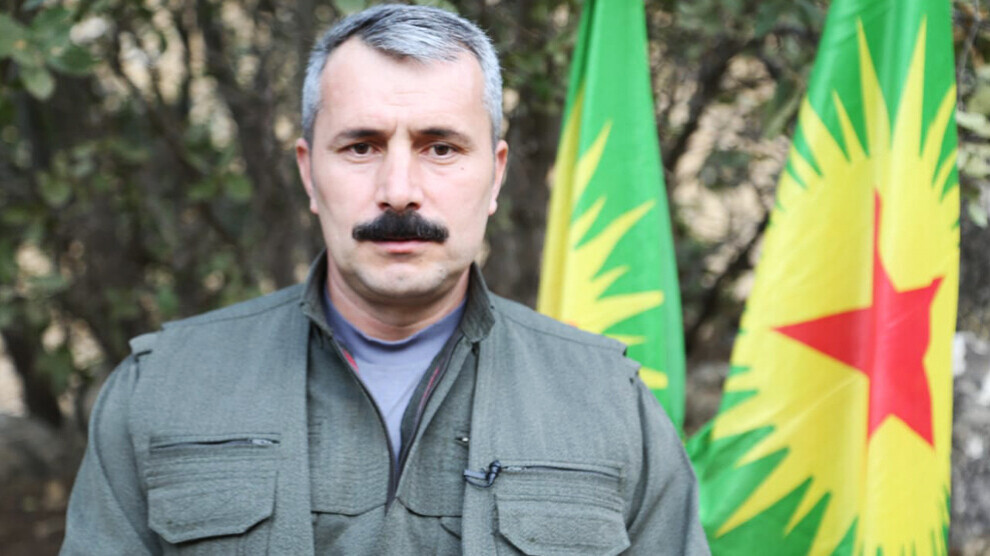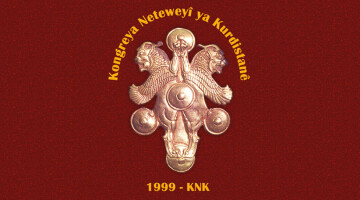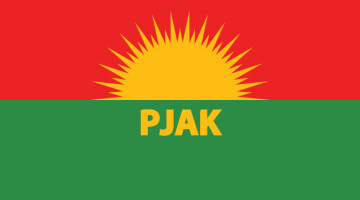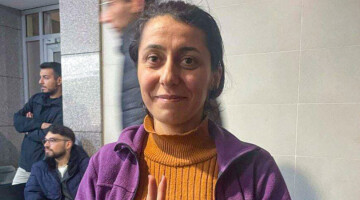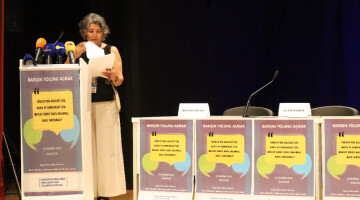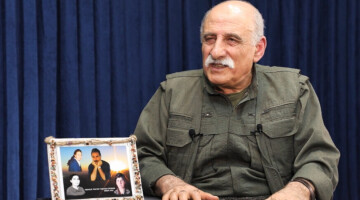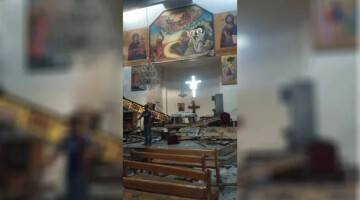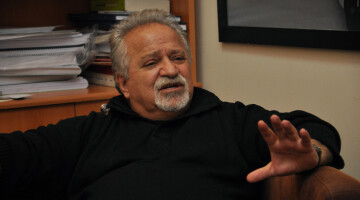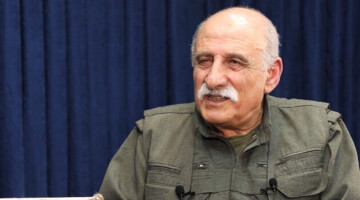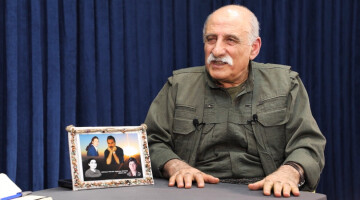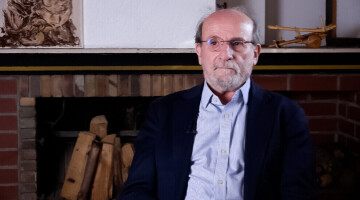The Turkish state's war of aggression against southern Kurdistan (northern Iraq), which has been ongoing for two weeks now, remains inconsequential for Ankara; the West has not raised any objections so far.
Interviewed by ANF, Zagros Hîwa, spokesman for the Kurdistan Communities Union (KCK), the umbrella organization of the Kurdish movement, sees the ignored invasion as a legitimization of Turkey's neo-Ottoman ambitions by NATO.
Currently, the war in Ukraine dominates the international headlines. At the same time, the war in Kurdistan continues and has recently even intensified. How do you evaluate this situation?
It is true, that Russia’s attack on Ukraine has been making international headlines for the last two months. Entire cities have been razed to the ground, thousands of people have been killed or injured, millions have been displaced and the entire infrastructure of one of the world’s economic poles is being destroyed before the eyes of the international public. The US, Europe, and NATO have mobilized all their economic, political, diplomatic, and military resources to ensure that this war is prolonged, their interests are ensured and Russia is contained and defeated. This is a war provoked by NATO. In this sense, it is a war between NATO and Russia as two of the major powers of capitalistic modernity. Unfortunately, the peoples of Russia and Ukraine and the larger Caucasus are paying the price for a war they never wanted.
At the same time, there is another war being fought in an area not far from Ukraine. This war is also being provoked and supported by NATO. But they are doing everything in their power to legitimize it and to ensure that nobody hears much about this war. The amount of weaponry and ammunition being used in this war is not less than in Ukraine. The airspace of two countries is being violated on a daily, even on an hourly basis. There are non-stop airstrikes, drone attacks, artillery shelling and helicopter attacks every day. Thousands of troops of a NATO member country have invaded two countries and have been cooperating with the world’s most reactionary and notorious terrorist groups. The war that we are talking about here is Turkey’s invasion of Kurdish land in Iraq and Syria.
Today, representatives of NATO and its member states say that they are defending democracy and freedom in Ukraine. What is your take on this?
NATO tries to portray itself as the defender of the people of Ukraine and a supporter of the territorial integrity and sovereignty of the Ukrainian state. But it closes its eyes when one of its members inflicts great suffering on the peoples in Iraq and Syria, particularly the Kurdish people, either by sponsoring terrorist groups like the Islamic State and the al-Nusra front - which is now reorganized as the FSA and HTS - or by directly invading large swathes of land and evicting the most ancient peoples of these territories from their ancestral lands. Thus, Turkey is clearly subjecting the invaded areas to demographic change.
On April 17, Turkey started massive new attacks on the South Kurdish regions of Metîna and Avashîn. Is this war only limited to these areas?
Turkey’s Erdogan follows an irredentist policy of Neo-Ottomanism in the Middle East. As we are approaching the first centennial of the Lausanne Treaty, Erdogan dreams of annexing the Aleppo region of Syria and the Mosul province of Iraq and thus making them a part of his caliphate. He has already invaded large parts of the Aleppo region and areas which are part of the Kurdish-majority regions of Syria, that is, Rojava. Turkey has not only invaded Afrin, Azzaz, Bab, Cerablus, Serekani and Gire Spi, but is also attacking other territories of Rojava with drones and artillery shelling on a daily basis.
In Iraq, Turkey has been trying to invade what was once called the Mosul Province, a large territory covering all of the South Kurdistan region including Mosul, Kirkuk, Erbil, Sulaimaniyah, Duhok and Halabja. Turkey first made such an attempt with the help of IS when IS invaded Mosul, Sinjar, and large swathes of Mosul province. When IS attacked Mosul, Turkey didn’t withdraw its consulate staff from there but instead ordered them to stay as part of a symbolic effort to recognize IS. Turkey also encouraged IS to attack other areas of South Kurdistan. When this plan by Turkey failed thanks to the resistance of the PKK guerrilla forces and South Kurdistan’s Peshmerga backed by the international coalition, Turkey started to act directly to invade Mosul province. Since 2019, Turkey has been staging huge cross-border operations into the territory of South Kurdistan and has set up more than 70 military posts deep inside Iraqi territory. The KDP and the Barzani clan have collaborated with Turkey in this invasion plan, just as they collaborated with IS in 2014, which resulted in the genocide against the Ezidis.
Can you give us more information on how the heavy fighting between the Turkish army and the guerrilla forces HPG and YJA-STAR has been going so far?
Starting on 17th of April, Turkey conducted a new wave of attacks against South Kurdistan, North Iraq. The first targets of these attacks have so far been the areas of Zap and Avashîn, where PKK guerrillas are positioned. Turkey attacks the PKK because it regards the Kurdistan Freedom Movement as the main obstacle in the way of Erdogan’s Neo-Ottoman ambitions. The Zap and Avashîn areas, along with Metîna and Heftanîn, have come under heavy attack by the Turkish army. The areas have been bombed more than 300 times in the last 2 weeks. Thousands of artillery attacks have taken place since then, with 24/7 drone activity and huge troop deployments. This is an all-out war which Turkey´s war minister Hulusi Akar has described as ‘the most large-scale military operation in the history of the Turkish Republic’. Suffering nearly 250 losses and unable to break the guerrilla resistance, Turkey started to use poisonous gases and chemical weapons against the guerrilla positions. Following the heritage of Saddam, Erdogan has thus become yet another dictator that uses chemical weapons against the Kurds.
Is Turkey carrying out these attacks on its own or does it receive support from other powers?
Unfortunately, some politicians and officials in the Iraqi state are using the Iraqi army as the cannon fodder of Erdogan’s war machine. In coordination with Erdogan’s attacks on the Zap, Metîna, and Avashîn regions, the Iraqi army started attacking the positions of the self-defense forces of Sinjar, the YBS and YJS, but also of the local internal security forces Asayîsh. The Iraqi army wants to achieve what Erdogan and IS have failed to do since 2014, that is, it wants to force the Ezidi people into submission and deprive them of their right to self-administration and self-defense as a community which has always been under existential threat from Islamist radicals and dictators and has suffered 74 massacres to date. One wonders how the authorities of a state can stage attacks against their own people in order to appease the dictator of a neighboring state. Only this single instance shows that there is no state and state authority left in Iraq. Mustafa Kazimi, the prime minister of Iraq, and Masrour Barzani, the prime minister of the KRI, have turned the Iraqi soldiers and their own Peshmerga forces into the cannon fodder of Erdogan’s army.
It seems that the attacks on South Kurdistan, from Zap and Avashîn all the way to Sinjar, are the result of a secret agreement reached between Erdogan, Kazimi, and Mesrur Barzani. Not surprisingly, just hours before the Turkish invasion, Mesrur Barzani was on a visit to Turkey and met with Erdogan. The KDP and the Barzanis are fully collaborating with Erdogan in his invasion plans in South Kurdistan. They provide the sultan’s army with critical intelligence on the guerrilla position, have given the Turkish army a free hand in invading wherever it wants in Kurdistan and are legitimizing the Turkish invasion by spreading fake propaganda regarding the Kurdistan Freedom Movement.
You also mentioned the support of NATO for Turkey´s war in South Kurdistan. What justification do NATO and its member states use for their support for Turkey´s war in South Kurdistan?
NATO is also playing double standards in this game. An alliance which claims that it is against the Russian invasion of Ukraine is at the same time supporting the invasion plans of Turkey’s Erdogan against Iraq and Syria. NATO claims that by doing so it simply recognizes Turkey’s ‘legitimate security concerns’ which, in fact, are neither legitimate, nor have anything to do with security. Therefore, NATO is in fact supporting Turkey’s illegitimate neo-Ottoman ambitions.
Another argument which NATO and the US use to legitimize Turkey’s invasion in Iraq and Syria is the arbitrarily designed ‘terror list’. This is another example of the double standards that the US and NATO have. While the Kurdistan Freedom Movement was and still is at the forefront of the struggle against IS terror, Turkey continues to support this terror group in many areas in the Middle East. So how come the US, EU and NATO design the PKK as a terror organization while further cementing their alliance with Turkey, which is the main enabler and sponsor of IS?
Is there something you would like to add?
The things I talked about earlier are the hard facts we can learn from the freedom struggle waged in Kurdistan. This struggle reveals the truth about the real intentions and policies of the regional and the international powers. There is a WWIII going on in the region and the peoples of the Middle East, just like the peoples of Ukraine and Russia, are paying the price for this war. All these wars won’t stop until the people take their destiny into their own hands, stand in solidarity with each other, and build self-administrative governance systems based on self-defense.

